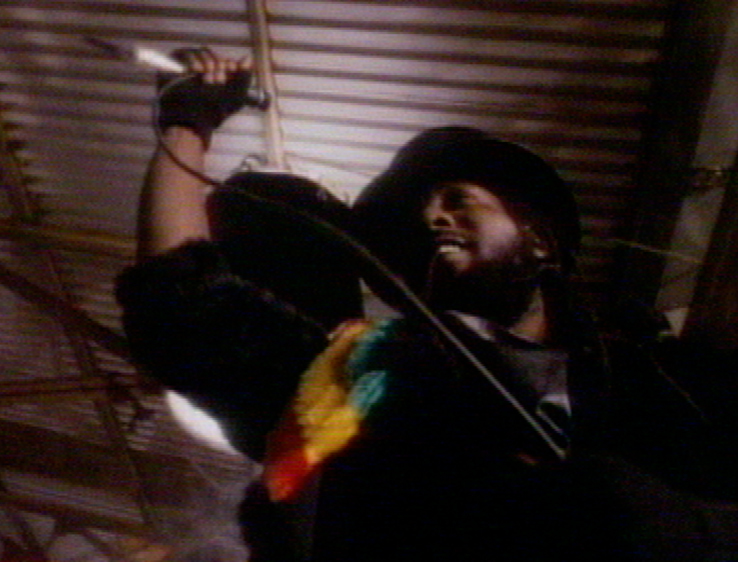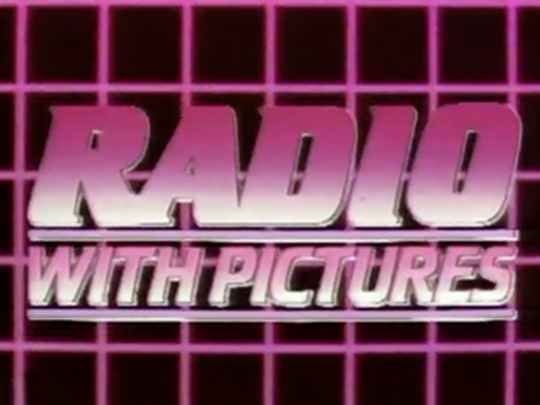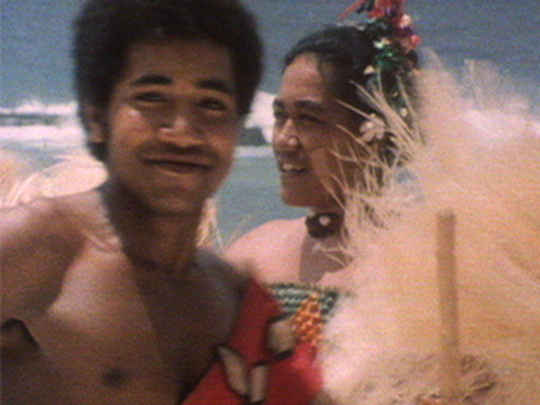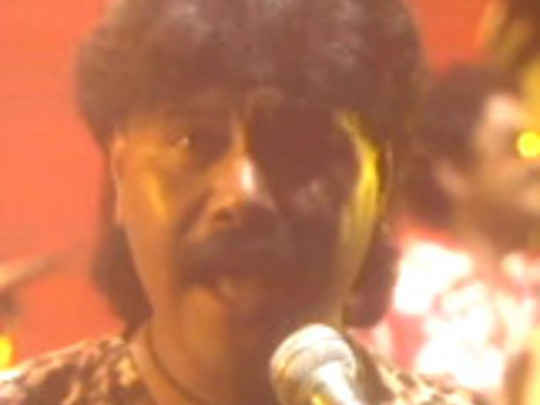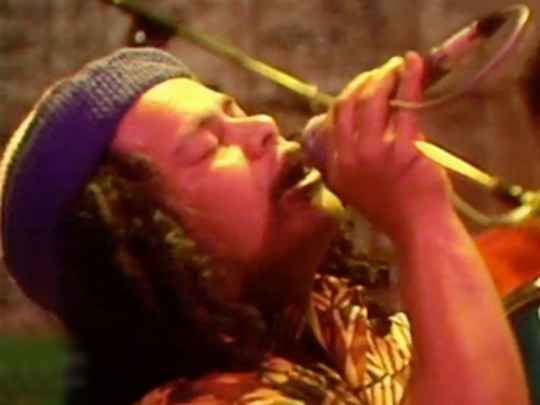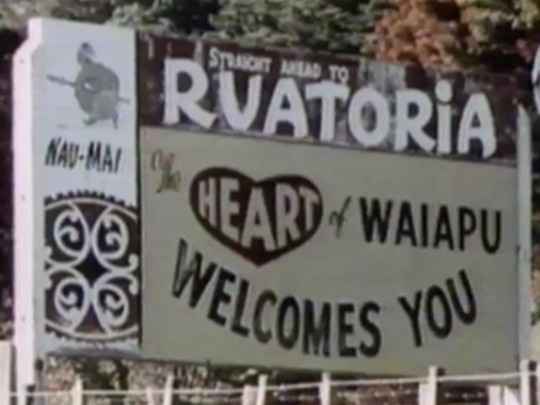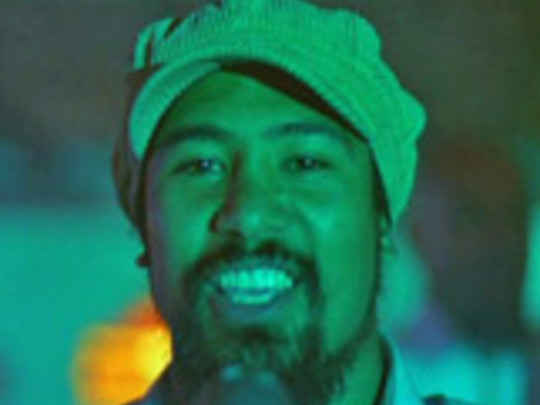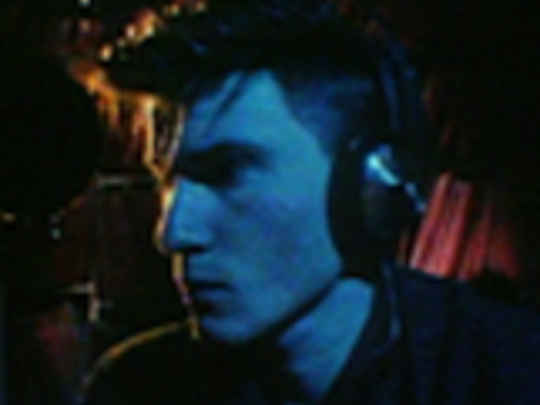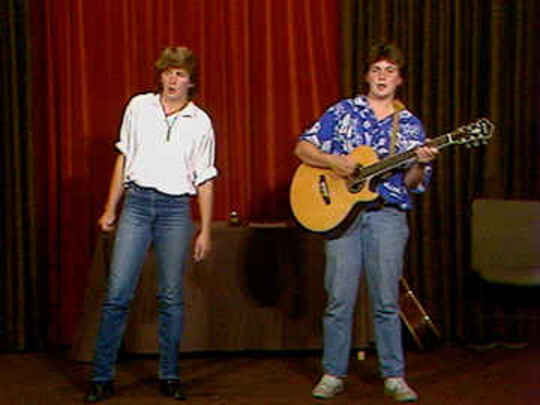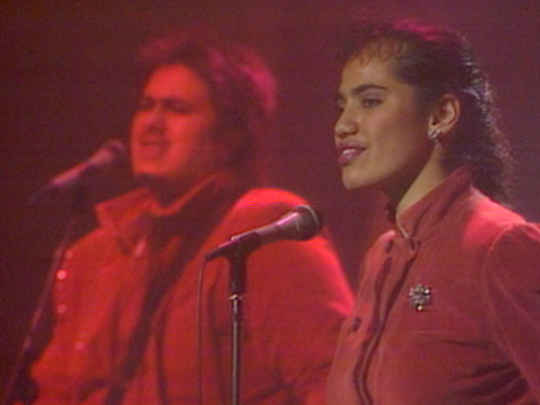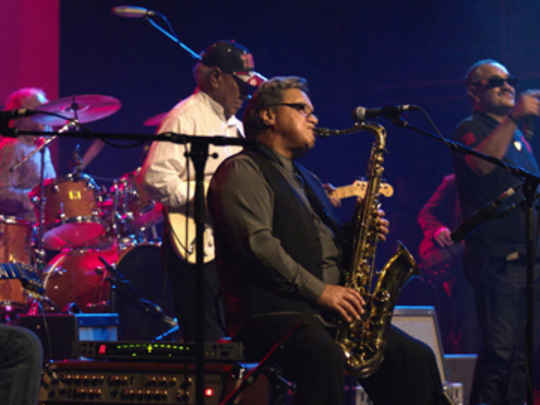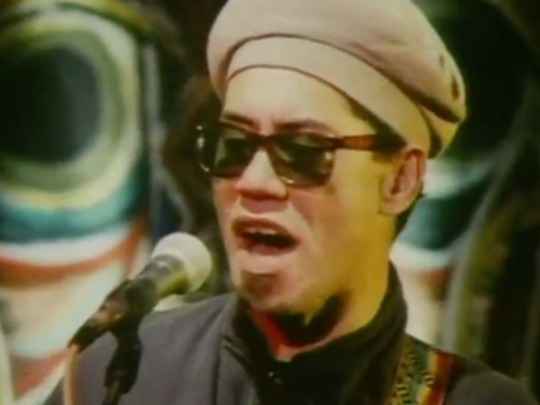The song was a political protest, a kaupapa Māori driven message that expressed the need for Māori self-determination and empowerment against colonisation and its detrimental effects. It utilised a solid four-on-the-floor reggae beat that rhythmically helped to push the lyrics out. For so many young Māori this waiata has become an anthem against oppression with a message: 'Māori people, gotta wake up, gotta take up the cause'.
– AudioCulture writer Maree Sheehan on ‘Maranga Ake Ai’, the "best known" song by band Aotearoa, 15 September 2001
This is a song that the radio stations refuse to play...because they can't swallow the message. So we're gonna preach the message to you, tonight, here.
– Aotearoa vocalist Joe Williams introduces song 'Maranga Ake Ai'
This next song's dedicated to the rastafarians from Ruatoria.
– Dread, Beat & Blood singer/guitarist David Grace introduces song 'Waitangi'
With Dread Beat & Blood, it’s the Jamaican influence rather than the political message that takes the forefront. They have the look and sound of a roots reggae band, and are as technically proficient at their music as Aotearoa are at theirs: musicianship is a point of pride for these bands. Another large group, Dread Beat & Blood has a daunting frontline of four unsmiling, dreadlocked rastas, all in Ray-Ban sunglasses and jungle fatigues.
– Chris Bourke reviews the 1985 reggae package tour, Rip It Up, August 1986
It’s the softest of sells, a political theme achieved through musical hypnosis. And since the last time I saw Herbs, the message has been brought home: “We’re fighting for land at Ōrākei / We’re fighting for land in Northland / We’re fighting for power in parliament ...”
– Chris Bourke reviews Herbs on tour in 1985, Rip It Up (via AudioCulture)
